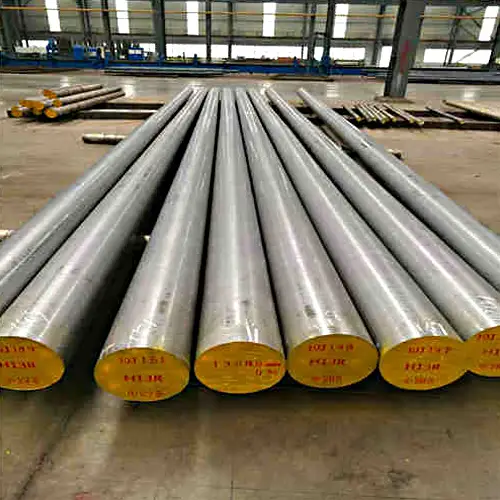We are committed to providing one-stop service for steel pipe products to customers around the world.



EN24 is usually supplied in the finally heat treated condition (quenched and tempered to “T” properties) up to a limiting ruling section of 250mm, which is superior to grades 605M36, 708M40 or 709M40 – see properties below. Please refer to our selection guide for comparisons.
In addition to the above, EN24T is capable of retaining good impact values at low temperatures, hence it is frequently specified for harsh offshore applications such as hydraulic bolt tensioners and shipborne mechanical handling equipment.
Chemical Properties of EN31 Steel Round Bars, 52100 Bearing Steel and other Equivalents
|
Carbon |
0.36-0.44% |
|
Silicon |
0.10-0.35% |
|
Manganese |
0.45-0.70% |
|
Sulphur |
0.040 Max |
|
Phosphorus |
0.035 Max |
|
Chromium |
1.00-1.40% |
|
Molybdenum |
0.20-0.35% |
|
Nickel |
1.30-1.70% |
Mechanical Properties
|
Max Stress |
850-1000 n/mm2 |
|
Yield Stress |
680 n/mm2 Min |
|
Yield Stress |
650 n/mm2 Min |
|
0.2% Proof Stress |
665 n/mm2 Min |
EN24 STEEL Heat Treatment
En24 material heat treatment are listed below, including normalizing, hardening and termpering.
Hardening: 830 to 860 °C (1525-1580 °F), oil quench,
Tempering temperature: 550 to 660 °C (1020-1220 °F)
EN24 STEEL TYPICAL APPLICATIONS
For all metal-cutting tools for roughing or finishing such as twist drills, diverse milling cutters, thread dies, broaches, reamers, countersinks, thread chasers, circular saw segments, shaping tools and woodworking tools. Also highly suitable for cold-forming tools such as cold extrusion rams and dies, as well as cutting and precision cutting tools, plastic moulds with elevated wear resistance and screws.Commercial applications for this engineering material include:
High strength shafts
Punches & dies
Drill bushings
Retaining rings
Gears
EN24 Steel Quality Certification
A material test report(Inspection
Certificate EN 10204 3.1) will be provided, documenting the following:
1.Chemical analysis
2.Mechanical properties
3.Surface hardness
4.Non Metallic Inclusion
5.Heat Treatment Process
6.Grain size
7.Forging ratio
8.NDE test method/criteria